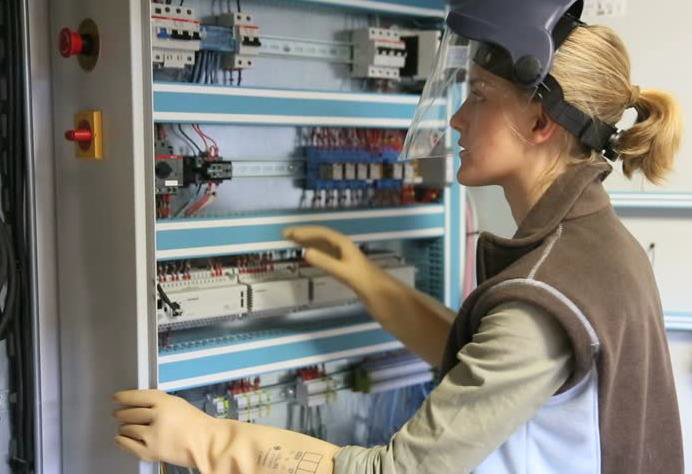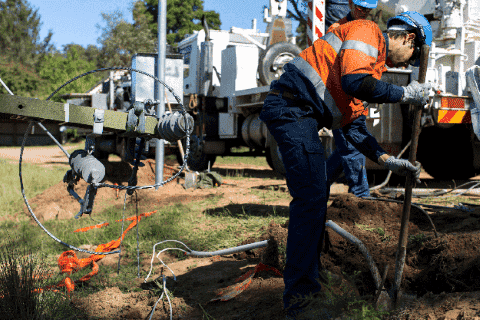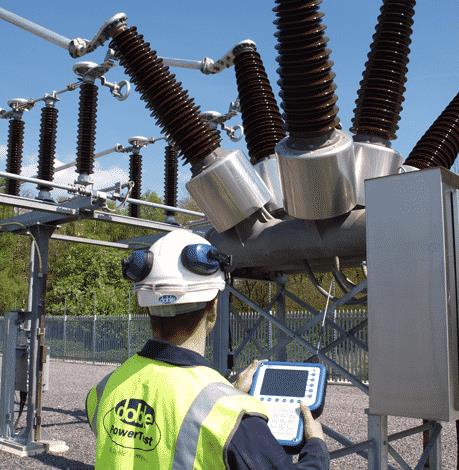COURSE OVERVIEW
EE0290 : Electrical Power System Components - Part I

OVERVIEW
| COURSE TITLE | : | EE0290 : Electrical Power System Components - Part I |
| COURSE DATE | : | Sep 01 - Sep 05 2024 |
| DURATION | : | 5 Days |
| INSTRUCTOR | : | Mr. William Hardi |
| VENUE | : | Dubai, UAE |
| COURSE FEE | : | $ 5500 |
| Request For Course | ||
OTHER SCHEDULED DATES
| Date | : | Aug 11 - Aug 15 2024 (5 Days) | Location | : | Doha, Qatar | Classroom Fee (US$) | : | $ 6000 | Course Info |
| Date | : | Nov 10 - Nov 14 2024 (5 Days) | Location | : | Abu Dhabi, UAE | Classroom Fee (US$) | : | $ 5500 | Course Info |
| Date | : | Dec 15 - Dec 19 2024 (5 Days) | Location | : | Al Khobar, KSA | Classroom Fee (US$) | : | $ 5500 | Course Info |
Course Description
Electric Power System has moved away from its regulated roots and is rushing headlong toward freewheeling competition, spurring more creative uses of energy and unprecedented advancements in plant efficiencies. Environmentalism has rushed forward too, ensuring that no power-generation technology is unscathed by demands for lower emissions and ecological impacts. Also, over the past decade, computer capability has skyrocketed in effectiveness and plummeted in cost, launching a mass invasion of control rooms by digital instrumentation. Changes such as these make today’s powerplant a more diverse and more complex mix of technologies than ever before.
This course is designed to provide a good coverage of the generation, transformation, transmission, distribution and utilization of electric power and energy as well as the modeling, analysis, planning, design, monitoring and control of modern electric power systems. It will provide a contemporary overview of this far-reaching field as well as bringing together the core of knowledge from all of the many topics encompassed by the field.
The course is intended to give participants a working knowledge of the modern electric power systems operations from generation through transmission and distribution through wiring. Basic electrical terminology and concepts are discussed with regard to design, construction, operations and maintenance of power plants substations and transmission and distribution lines. The effects of the deregulation of electric power utilities are discussed with interesting examples. The basic concepts of fiber optics and other telecommunications systems used in the electric power industry are also presented.
Further, the course will introduce and explore a number of engineering and economic problems involved in planning, operating, and controlling power generation and transmission systems in electric utilities. The topics included serve as an effective means to introduce participants to advanced operations methods applied to practical electric power engineering problems. Some topics cover methods that are currently being applied in the control and operation of the modern electric power systems. However, in a 5-day course it is, of course, impossible to consider all the problems and “best practices” in this advanced field. We can only introduce the types of problems that arise, illustrate theoretical and practical approaches and point the participant the direction of seeking more information and developing advanced skills as they are required. As a matter of fact, this course covers a wide range of topics related to the design, operation and control of power systems that are usually treated separately. Various issues are treated in depth with analytical rigor and practical insight. The subject matter is presented in a very interesting and unique perspective. It combines, in a structured way, control theory, characteristics and modeling of individual elements and analysis of different aspects of modern electric power systems.
This course is designed to provide a good coverage of the generation, transformation, transmission, distribution and utilization of electric power and energy as well as the modeling, analysis, planning, design, monitoring and control of modern electric power systems. It will provide a contemporary overview of this far-reaching field as well as bringing together the core of knowledge from all of the many topics encompassed by the field.
The course is intended to give participants a working knowledge of the modern electric power systems operations from generation through transmission and distribution through wiring. Basic electrical terminology and concepts are discussed with regard to design, construction, operations and maintenance of power plants substations and transmission and distribution lines. The effects of the deregulation of electric power utilities are discussed with interesting examples. The basic concepts of fiber optics and other telecommunications systems used in the electric power industry are also presented.
Further, the course will introduce and explore a number of engineering and economic problems involved in planning, operating, and controlling power generation and transmission systems in electric utilities. The topics included serve as an effective means to introduce participants to advanced operations methods applied to practical electric power engineering problems. Some topics cover methods that are currently being applied in the control and operation of the modern electric power systems. However, in a 5-day course it is, of course, impossible to consider all the problems and “best practices” in this advanced field. We can only introduce the types of problems that arise, illustrate theoretical and practical approaches and point the participant the direction of seeking more information and developing advanced skills as they are required. As a matter of fact, this course covers a wide range of topics related to the design, operation and control of power systems that are usually treated separately. Various issues are treated in depth with analytical rigor and practical insight. The subject matter is presented in a very interesting and unique perspective. It combines, in a structured way, control theory, characteristics and modeling of individual elements and analysis of different aspects of modern electric power systems.
TRAINING METHODOLOGY
This interactive training course includes the following training methodologies:
LecturesWorkshops & Work Presentations
Case Studies & Practical Exercises
Videos, Software & Simulators
In an unlikely event, the course instructor may modify the above training methodology for technical reasons.
VIRTUAL TRAINING (IF APPLICABLE)
If this course is delivered online as a Virtual Training, the following limitations will be applicable:
| Certificates | : | Only soft copy certificates will be issued |
| Training Materials | : | Only soft copy materials will be issued |
| Training Methodology | : | 80% theory, 20% practical |
| Training Program | : | 4 hours per day, from 09:30 to 13:30 |
RELATED COURSES

EE0660 : Earthing, Bonding, Lightning & Surge Protection of Electrical & Electronic Systems and Equipment
- Date: Jan 20 - Jan 24 / 3 Days
- Location: Kuala Lumpur, Malaysia
- Course Details Register

EE0421 : Electrical Transformers & Switchgears Faults, Inspection, Testing, Maintenance & Troubleshooting
- Date: Dec 23 - Dec 27 / 3 Days
- Location: London, United Kingdom
- Course Details Register

EE0200 : Practical Troubleshooting of Electrical Equipments & Control Circuits
- Date: Dec 23 - Dec 26 / 3 Days
- Location: Dubai, UAE
- Course Details Register

EE0571 : Electrical Power Systems Coordination
- Date: Dec 22 - Dec 26 / 3 Days
- Location: Al Khobar, KSA
- Course Details Register
